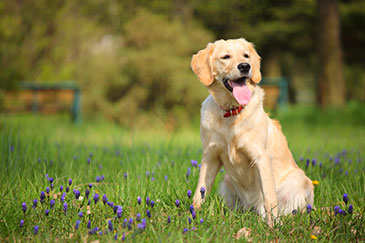Richard Wall, Professor of Zoology in Bristol's School of Biological Sciences, together with Paul Sands, MRCVS, a specialist veterinary dermatologist from the Pride Veterinary Hospital in Derbyshire, and veterinary advisor Renata Turlej MRCVS, discussed tick risk in a film streamed live on www.mypetonline.co.uk from the University. The film also featured staff and pets from Highcroft Veterinary Practice in Bristol being checked over for fleas and ticks.
Recent research by Professor Wall has highlighted the risk to pets from ticks in Bristol's parks. Tick numbers and the incidence of tick-borne disease (such as Lyme Disease) appear to have increased substantially over the last 10-20 years. Changes in climate (warmer winters and wetter summers), changes in habitat management, and changes in the abundance of hosts such as deer, may all be to blame.
Professor Wall said: "These green spaces that are heavily used by people and pets can funnel all the ingredients together to create high risk of tick infestation. It is important that people are aware of these risks and check regularly for ticks if they visit tick infested areas and, if bitten, remove any tick rapidly."
The film marks the launch of MyPetonline’s Big Flea Guarantee, a campaign set to run this summer with vet practices across the country offering free flea and tick checks and advice to pet owners. A voucher for a free flea check from participating veterinary practices can be downloaded from MyPetonline.
